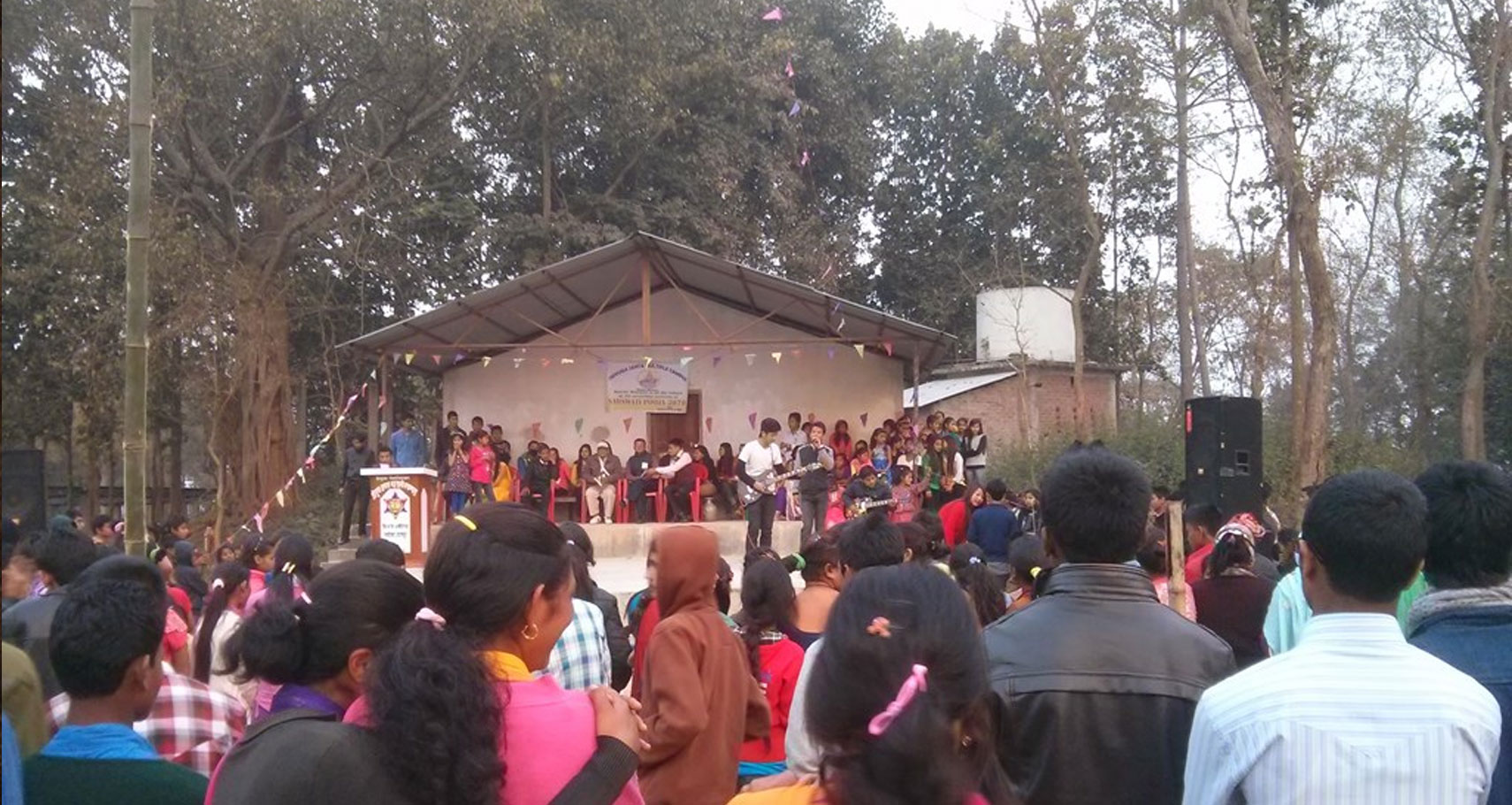The Book Bus rolled into Gaighat, Udayapur, and parked itself inside Triyuga Multiple Campus a day before Saraswati Puja. Saraswati is the goddess of wisdom in the Hindu pantheon. She is the one who grants degrees, and she is part of an integral chain that leads towards gainful employment. She is somewhere between Ganesh, who assures you of a good start, and Vishnu, who assures you continuity, and his consort Laxmi, who grants you prosperity. Saraswati also features as a river in vedic texts, a river that has since run dry. Present-day archaeologists claim that it was once the principal water body around which ancient Mohenjo-Daro and Harappa flourished. Once the waters ran dry, the civilizations quickly perished. Not the greatest omen for wisdom in this part of the world.
On Saraswati Puja, massive festivities centered on cultural performances, quiz contests, dances, singing and merry-making took place in an expansive field in the middle of the college. The BookBus was parked along the way and many a student stopped by and browsed a book or two before joining the celebrations. Inevitably, the pull of friendship and music was too strong and they moved on towards the stage. Over two thousand young men and women attended the festivities, and, as I managed the crowds of students who passed by the BookBus, I was glad that they had other events to move on to, allowing new groups to come and pay homage to Saraswati’s most poignant incarnations.
It is a strange idea to celebrate the goddess of knowledge with such merriment, but it is worth recalling that Saraswati is not just the god of scholars and padhanteys, but is also the goddess of music, art and nature. In this sense, she is the only Hindu god that truly embodies all that makes humanity what it is. It can be hard to imagine at times, but it isn’t just our textbooks that make us human. Humanity is not a rational, logical and mathematical derivative, but rather a product of our chaotic nature’s need to organize, create semblance and associate.
It was a pleasure to see young men and women truly enjoy the day for what it was. A celebration not just of the vast spheres of knowledge we have accumulated but also of our visceral and carnal centers. These are expressed in our arts, in our music, and in the unchaining of norms that happens when one becomes the dance and embodies the sounds and sensations all around. The BookBus, after all, cannot just teach and reason and explain and share and opinionate. It also has to engage at a level where our natural spirit for adventure and curiosity can be intertwined and ignited.















